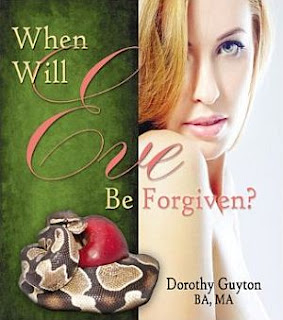When it comes to celebrating Black history, one part of that history, natural Black hair. gets overlooked. The hair of Black people has played a significant part in the evolution of Black people in America and the hairstyle DREADLOCKS has been center stage.
Hair matters and there is no other choice of hair style that has elicited strong emotions more so than dreadlocks. The dreadlock hair style is filled with history, confusion of origin, myth, and strong political and ethnic ownership. People argue about who is allowed to wear dreadlocks and where dreadlocks can be worn. Dreadlocks have been designated as a no in the workplace, but that is changing. Authors have penned books about dreadlock history or how to care for them. My book, Don't Dread Dreads, The People Speak is different. Through personal interviews and photos from around the world from dreadlock wearers, I give the reader intimate access to the world of dreadlocks. The dreadlock world is a world where even the ‘name’ to call the hair style is contentious. Dreadlocks evoke strong emotions and endless debate. Even if you do not choose to wear your hair in an African-centric hairstyle such as dreadlocks, your choice of hairstyle still speaks volumes. Has the African American community embraced their natural hair as a thing of beauty, or will the natural kinks and wooliness of our hair continue to cause shame and self-loathing? Recently, there has been a reclaiming and pride of natural hair in the Black community. Due to the availability of Black hair care products and the revelation of hair straighteners being linked to cancer, the Black community has begun to love their natural hair. The once hated coiled hair is now being viewed as beautiful and holds a sense of pride for Black men and women. But that was not always the case. Madam C. J. Walker (December 23, 1867-May 25, 1919) an American businesswoman, hair care entrepreneur, tycoon, and philanthropist, marketed beauty and hair products for black women. She was the first female to become a millionaire. She was born Sarah Breedlove in Delta, Louisiana and was the first member of her family to be born free. Her parents had been slaves. When she began to lose her hair from extreme dandruff and scalp disease from washing her hair once a month, which was customary during that time period, she designed her own line of hair care products. By 1917, she had the largest business in the United States owned by a black person. "I am a woman who came from the cotton fields of the South. From there I was promoted to the wash tub. From there I was promoted to the cook kitchen. And from there I promoted myself into the business of manufacturing hair goods and preparations...I have built my own factory on my own ground.'' An estimated 75% of American black women continue to perm or relax their hair.
When she began to lose her hair from extreme dandruff and scalp disease from washing her hair once a month, which was customary during that time period, she designed her own line of hair care products. By 1917, she had the largest business in the United States owned by a black person. "I am a woman who came from the cotton fields of the South. From there I was promoted to the wash tub. From there I was promoted to the cook kitchen. And from there I promoted myself into the business of manufacturing hair goods and preparations...I have built my own factory on my own ground.'' An estimated 75% of American black women continue to perm or relax their hair.  The award winning
The award winning  A generation earlier, actress Cicely Tyson was told by members of the black community that she may be a gifted actress, but her short natural hairstyle was detrimental to the image of black women.
A generation earlier, actress Cicely Tyson was told by members of the black community that she may be a gifted actress, but her short natural hairstyle was detrimental to the image of black women. Information source: Article by Russell K., Wilson M., and Hall R. (1992) Hair: the Straight and Nappy of it all, "The Color Complex: the Politics of Skin Color Among African Americans" NY: Anchor, 81-93.
Information source: Article by Russell K., Wilson M., and Hall R. (1992) Hair: the Straight and Nappy of it all, "The Color Complex: the Politics of Skin Color Among African Americans" NY: Anchor, 81-93.








I love that comment about Black hair is a part of Black history. There is so much history in Black hair and Black hairstyles.
ReplyDelete